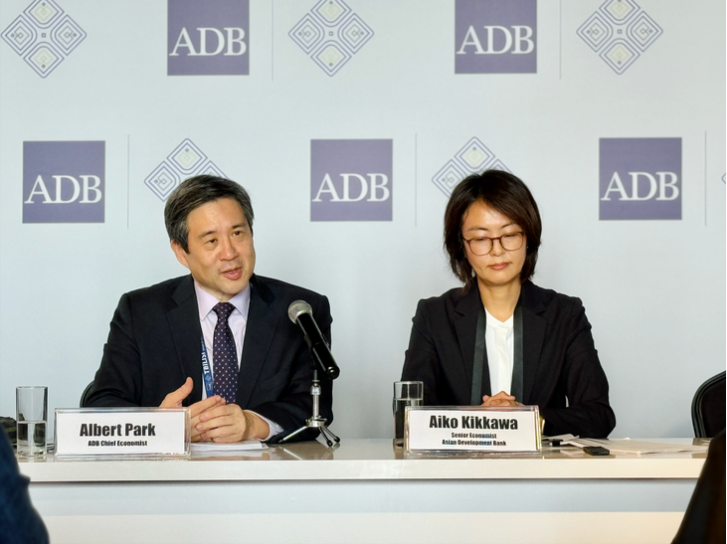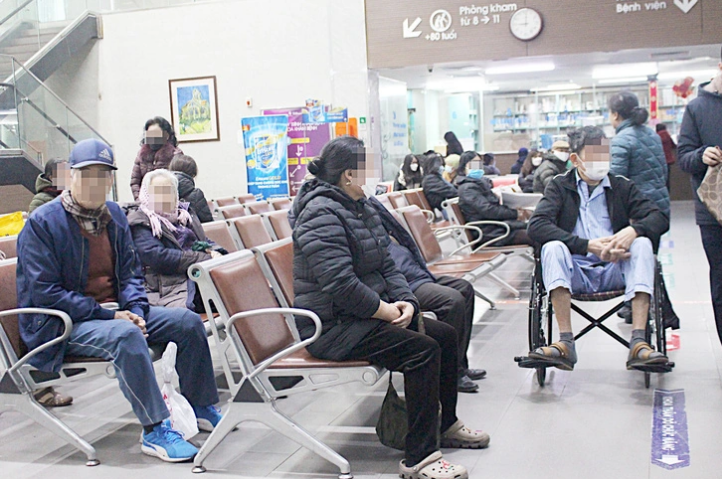Developing Asia and the Pacific, including Vietnam, is unprepared to secure the well-being of its rapidly aging population, according to a report released by the Asian Development Bank (ADB) at its 57th annual meeting in Georgia on Thursday.
While longer lifespans reflect the region’s development success, comprehensive policy reforms are urgently needed to support the welfare of older people, ADB’s 'Aging Well in Asia: Asian Development Policy Report' indicated.
The growing share of older people in the region faces challenges from low pension coverage to health problems, social isolation, and limited access to essential services.
ADB chief economist Albert Park said Asia and the Pacific’s rapid development is fueling a huge demographic shift and putting higher pressure on governments.
The number of people aged 60 and older in developing Asia and the Pacific is set to nearly double by 2050 to 1.2 billion, significantly increasing the need for pension and welfare programs as well as healthcare services.
In Vietnam, the number of people aged 60 and above is forecast to account for some 20 percent of its population by 2037.
The Southeast Asian country’s population aging pace is faster than that in other countries, Aiko Kikkawa, the main author of the report, told Tuoi Tre (Youth) newspaper.
The Vietnamese government has made strong efforts to resolve the issue in the long term, Kikkawa added.
At present, some eight percent of Vietnamese males who are between 60 and 64 years old and 24 percent of men aged 65 and older are capable of working but do not join the workforce.
If Vietnam can arrange suitable jobs for them, the country’s gross domestic product may rise an additional 1.1 percent, according to ADB.
In other words, the aging population is not a burden to governments, ADB chief economist Park noted.
“Governments need to prepare now if they’re going to be able to help hundreds of millions of people in the region age well. Policies should support lifetime investment in health, education, skills, and financial preparedness for retirement,” Park added.
Governments should not force the elderly to work, but create appropriate opportunities for them so that they can help foster economic development.
|
|
| Old people have their health checked at the National Geriatric Hospital in Hanoi. Photo: Duong Lieu / Tuoi Tre |
Economies in the region can make mandatory retirement ages more flexible, provide old people with suitable work opportunities as well as lifelong learning and skill development, and pay attention to family and social ties to boost healthy and productive populations of older people and maximize their contribution to society, the economist said.
ADB’s report also revealed that 40 percent of people over 60 in Asia and the Pacific lack access to any form of pension, with women disproportionately affected, as they are more likely to do unpaid domestic work.
As a result, many older people in the region have no choice but to work well beyond retirement age to survive.
Among those still working at age 65 or older, 94 percent work in the informal sector, which typically does not provide basic labor protections or pension benefits.
ADB recommended a wide range of policy measures to support healthy and economically secure aging.
Among these are government-assisted health insurance and pension plans, improved health infrastructure, and free annual check-ups and lifestyle evaluations.
Most governments are worried that the high number of old people will put pressure on their healthcare systems, Kikkawa told Tuoi Tre.
However, costs will fall if countries deal with the issue with preventive measures.
Preventive healthcare is important to Vietnam as the early detection of old people’s health issues will help reduce healthcare costs.
Vietnam should improve preventive healthcare services for young people as well, said Kikkawa.
Like us on Facebook or follow us on Twitter to get the latest news about Vietnam!

























































